Filter News
Area of Research
- Advanced Manufacturing (1)
- Biology and Environment (20)
- Biology and Soft Matter (1)
- Clean Energy (38)
- Electricity and Smart Grid (1)
- Functional Materials for Energy (1)
- Fusion and Fission (7)
- Fusion Energy (7)
- Materials (11)
- Materials for Computing (1)
- National Security (3)
- Neutron Science (3)
- Nuclear Science and Technology (12)
- Nuclear Systems Modeling, Simulation and Validation (1)
- Supercomputing (6)
- Transportation Systems (1)
News Topics
- (-) Advanced Reactors (34)
- (-) Decarbonization (74)
- 3-D Printing/Advanced Manufacturing (116)
- Artificial Intelligence (87)
- Big Data (50)
- Bioenergy (88)
- Biology (96)
- Biomedical (58)
- Biotechnology (21)
- Buildings (54)
- Chemical Sciences (59)
- Clean Water (29)
- Climate Change (94)
- Composites (25)
- Computer Science (184)
- Coronavirus (46)
- Critical Materials (24)
- Cybersecurity (35)
- Education (3)
- Element Discovery (1)
- Emergency (2)
- Energy Storage (107)
- Environment (192)
- Exascale Computing (36)
- Fossil Energy (5)
- Frontier (41)
- Fusion (53)
- Grid (61)
- High-Performance Computing (83)
- Hydropower (11)
- Irradiation (3)
- Isotopes (47)
- ITER (7)
- Machine Learning (46)
- Materials (140)
- Materials Science (134)
- Mathematics (6)
- Mercury (12)
- Microelectronics (2)
- Microscopy (50)
- Molten Salt (8)
- Nanotechnology (60)
- National Security (59)
- Net Zero (12)
- Neutron Science (129)
- Nuclear Energy (105)
- Partnerships (40)
- Physics (59)
- Polymers (31)
- Quantum Computing (31)
- Quantum Science (66)
- Renewable Energy (2)
- Security (24)
- Simulation (45)
- Software (1)
- Space Exploration (24)
- Statistics (3)
- Summit (57)
- Sustainable Energy (120)
- Transformational Challenge Reactor (7)
- Transportation (93)
Media Contacts
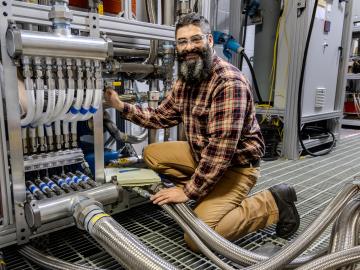
Within the Department of Energy’s National Transportation Research Center at ORNL’s Hardin Valley Campus, scientists investigate engines designed to help the U.S. pivot to a clean mobility future.
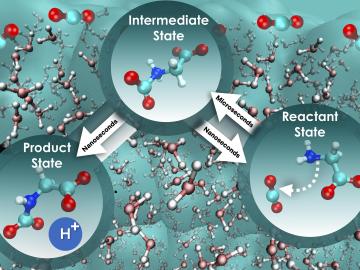
Recent research by ORNL scientists focused on the foundational steps of carbon dioxide sequestration using aqueous glycine, an amino acid known for its absorbent qualities.
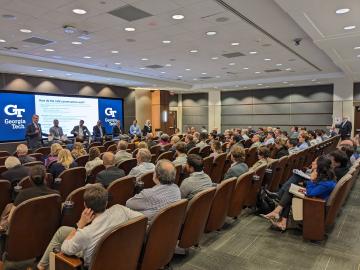
ORNL's Climate Change Science Institute and the Georgia Institute of Technology hosted a Southeast Decarbonization Workshop in November that drew scientists and representatives from government, industry, non-profits and other organizations to

Scientists at ORNL used their knowledge of complex ecosystem processes, energy systems, human dynamics, computational science and Earth-scale modeling to inform the nation’s latest National Climate Assessment, which draws attention to vulnerabilities and resilience opportunities in every region of the country.
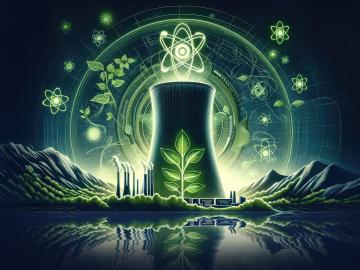
Anne Campbell, a researcher at ORNL, recently won the Young Leaders Professional Development Award from the Minerals, Metals & Materials Society, or TMS, and has been chosen as the first recipient of the Young Leaders International Scholar Program award from TMS and the Korean Institute of Metals and Materials, or KIM.
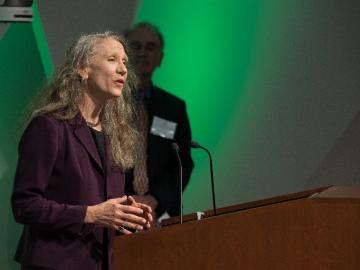
The founder of a startup company who is working with ORNL has won an Environmental Protection Agency Green Chemistry Challenge Award for a unique air pollution control technology.
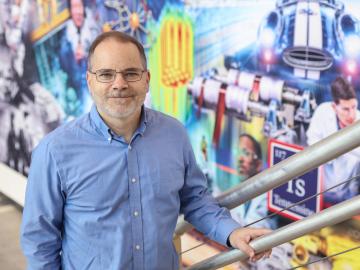
ORNL has been selected to lead an Energy Earthshot Research Center, or EERC, focused on developing chemical processes that use sustainable methods instead of burning fossil fuels to radically reduce industrial greenhouse gas emissions to stem climate change and limit the crisis of a rapidly warming planet.
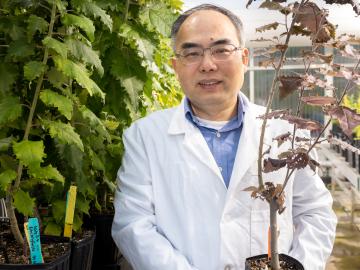
Scientist Xiaohan Yang’s research at the Department of Energy’s Oak Ridge National Laboratory focuses on transforming plants to make them better sources of renewable energy and carbon storage.
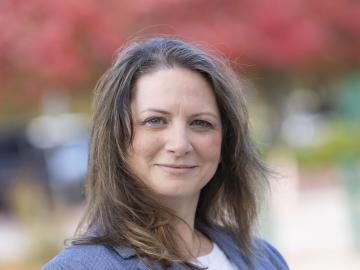
Michelle Kidder, a senior R&D staff scientist at ORNL, has received the American Chemical Society’s Energy and Fuels Division’s Mid-Career Award for sustained and distinguished contributions to the field of energy and fuel chemistry.
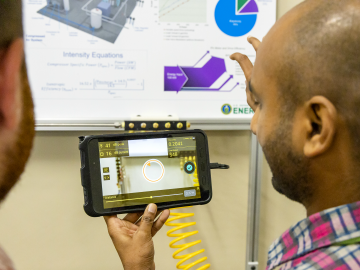
ORNL researchers have developed a training camp to help manufacturing industries reduce energy-related carbon dioxide emissions and improve cost savings.




